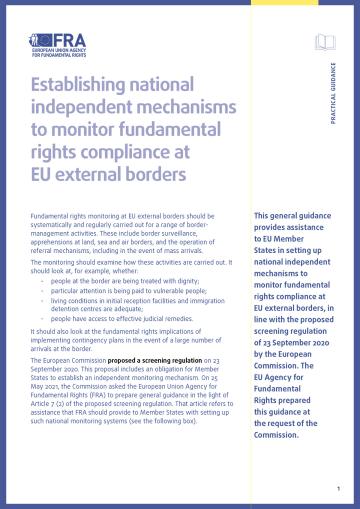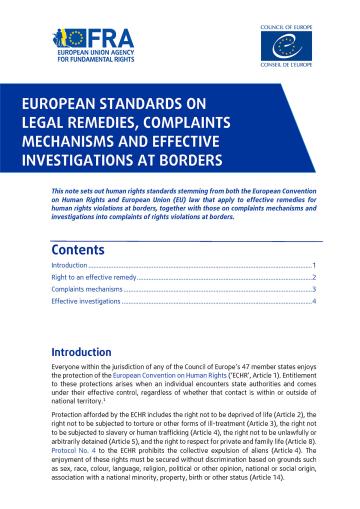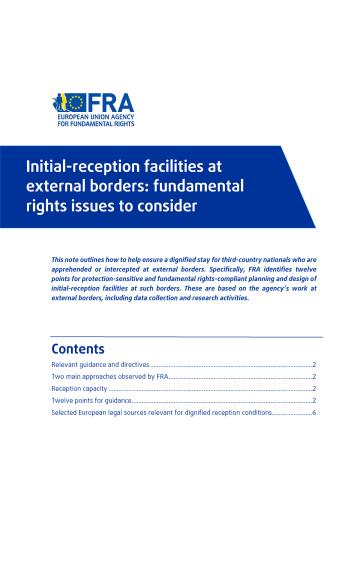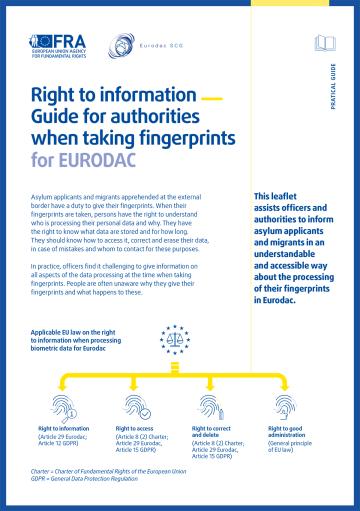** As of 19 September 2024 a new version of this guidance has been issued. **
Fundamental rights monitoring at EU external borders should look at, for example, whether:
- people at the border are being treated with dignity;
- particular attention is being paid to vulnerable people;
- living conditions in initial reception facilities and immigration detention centres are adequate;
- people have access to effective judicial remedies.
It should also look at the fundamental rights implications of implementing contingency plans in the event of a large number of arrivals at the border.
The European Commission proposed a screening regulation on 23 September 2020. This proposal includes an obligation for Member States to establish an independent monitoring mechanism. On 25 May 2021, the Commission asked the European Union Agency for Fundamental Rights (FRA) to prepare general guidance in the light of Article 7 (2) of the proposed screening regulation. That article refers to assistance that FRA should provide to Member States with setting up such national monitoring systems.













